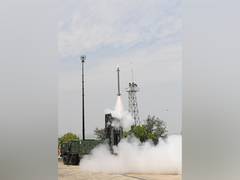Use of renewable energy, solar rooftops exemplify shift towards greener future: Manohar Lal
New Delhi, Feb 18 (PTI) Union Housing and Urban Affairs minister Manohar Lal on Tuesday said that transitioning from thermal to renewable energy, utilising solar rooftops, and implementing regenerative braking in metros exemplify the shift toward a greener future.
CII Indian Green Building Council (CII IGBC), in partnership with the Delhi Metro Rail Corporation (DMRC), inaugurated the 5th international conference on Green Metro Systems – The Future of Urban Mobility.
Addressing the conference, the minister said, “As humanity progresses, our innovations often clash with nature, bringing both advancement and risk. The rise in global temperatures beyond 1.5°C has become a cause for global concern, prompting nations to unite under agreements like the Paris Accord.”
India, too, has committed to achieving net-zero emissions by 2070, aligning its growth with sustainability. Urbanisation and industrialisation have increased pollution, but initiatives such as the Delhi Metro have significantly reduced environmental impact, demonstrating that thoughtful infrastructure can drive progress while protecting nature, the minister said.
Energy efficiency and clean power are the need of the hour. Transitioning from thermal to renewable energy, utilising solar rooftops, and implementing regenerative braking in metros exemplify the shift toward a greener future.
Technological advancements, like vertical solar panels and energy-efficient LED systems, pave the way for sustainable urban living. Furthermore, responsible consumption — whether in air-conditioning usage or minimising wastage — can have a profound impact on energy conservation, he said.
“When metro started in Delhi, it has saved the national capital. Imagine, if the metro had not been there, Delhi would not have been able to develop this type of mobility system today. Around 70 lakh people are travelling daily in the metro,” he said.
The minister also noted that the next thing is that the industrial revolution depends on power.
Pollution also occurs in the generation of power because the traditional method is thermal, following which hydro also came. More thermal use will lead to pollution and global warming, he stated.
Then the renewable energy came and how the responsibility the Delhi Metro has taken to contribute into the transfer of renewable energy through solar or wind is highly commendable, the minister said.
“At least the power requirement for our metro should come from renewable energy. We do not have to take any fossil power, and if we do this then we will make a huge contribution,” he said.
According to a statement, Indian metro rail corporations are contributing to the green building movement by offering energy-efficient, low-emission public transportation thereby reducing urban pollution and traffic congestion.
Many metro stations, throughout India, are designed with energy-efficient technologies and use solar power systems which help reduce energy consumption. The DMRC is a pioneer in integrating solar power which helps meet a significant portion of its needs, it said.
Bengaluru, Hyderabad, Jaipur, Kochi, Lucknow, Mumbai, Nagpur, and Pune, metro rail have also received IGBC certification for their commitment to sustainable designs and the use of green material to further minimise their environmental impact, it stated.
The conference also saw the inauguration of India’s first vertical bi-facial solar plant installation on metro viaduct and 1MW rooftop solar power plant installed at Khyber Pass depot. The bi-facial panels are designed to capture sunlight from both sides, the statement said.
It will take advantage of the metro’s elevated structure for solar energy generation without occupying any additional land. This is an innovative step in making metro rail operations more sustainable and contributes to renewable energy goals, it said.
The CII Indian Green Building Council’s Green MRTS Rating System, applicable to Metro Rail Systems, is a comprehensive framework to evaluate the sustainability performance of metro rails in India.
It evaluates multiple categories such as energy and water management, material and resources, integration of renewable energy sources such as solar power and enhances the commuter experience.






